About Alsana
Aslana in Birmingham, Alabama, is an eating addiction treatment facility. It’s not far from the Rock Moss Preserve. They’re certified by The Joint Commission and are a REDC member. The center treats clients with anorexia, ARFID, binge eating disorder, bulimia, diabulimia, OSFED, and co-occurring mental health disorders. Residential and outpatient care are available.
Co-occurring Substance Use Treatment
Co-occurring disorders are commonly anxiety, depression, trauma, or substance use. These disorders are treated with psychotherapy, nutritional education, and sometimes medication combined with behavioral therapies.
Residential Eating and Co-occurring Treatment
Residential treatment is in an environment that has a home-like feel. You’ll be cared for 24 hours per day by nurses and other staff.
Each week you will have two individual sessions with your primary therapist, a session with the support person in your life, a nursing assessment, two nutrition counseling sessions, and one psychiatry session. Clients meet in a group of their peers for therapy five times per day.
Healthy Eating Habits
All Inclusive Nutrition is their specialized program that teaches flexibility and enjoyment of food without feeling ashamed of oneself or fearing judgment. Prior negative feelings are redirected to focusing on nourishment, flexibility and pleasure in healing through nutrition. Vegan options are available.
Your dietician works on foods that provide the specific nutrients your body needs. Gradual exposure starts with eating independently and advances to eating with peers at the center. After some time outings will be integrated such as grocery shopping and a group outing to a local restaurant.
In addition to these therapeutic interventions you will learn how to plan healthy meals, how to determine healthy portions, and skills in the kitchen. The goal of your treatment is to eliminate the anxiety you have felt about eating and body changes. That way, you won’t have to depend on drugs to feel better.
Outpatient Eating and Co-occurring Treatment
Outpatient programs include day treatment and intensive outpatient treatment. Day treatment consists of 6-8 hours of program each day for five to seven days per week. Intensive outpatient treatment requires four hours of programming per day for fewer days per week. Virtual outpatient appointments are available.
LGBTQ+ Addiction Treatment
Specialized programming includes LGBTQ+ affirming eating disorder treatment. A high percentage of individuals in this community experience eating disorders due to trauma and gender violence. When people aren’t accepted by members of our community, they look for flaws in themselves and can punish themselves in unhealthy ways while looking for acceptance.
Latest Reviews
Rehab Score
Gallery
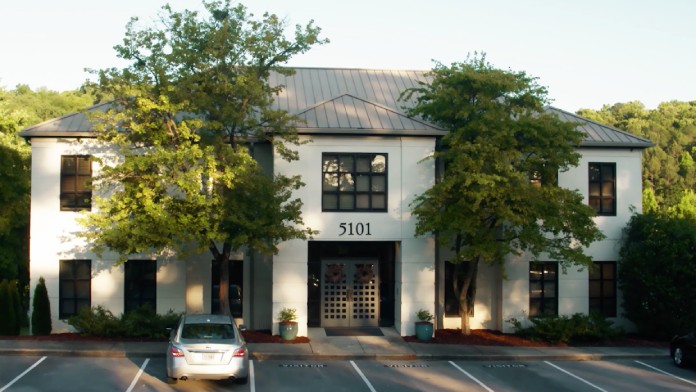
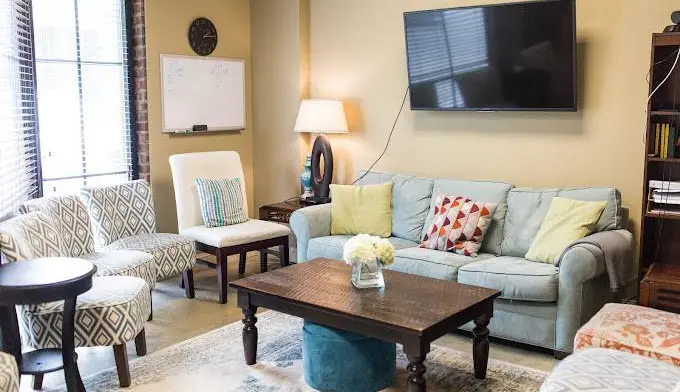

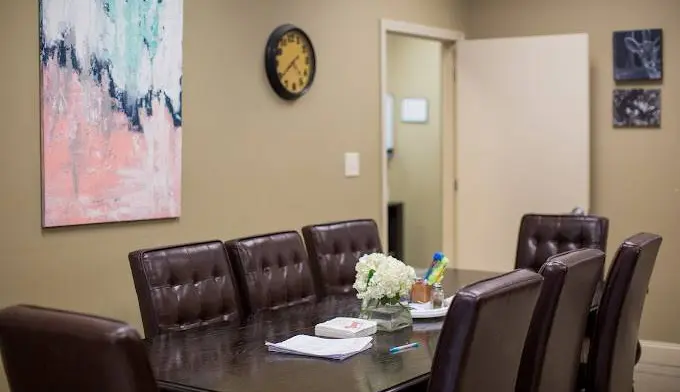
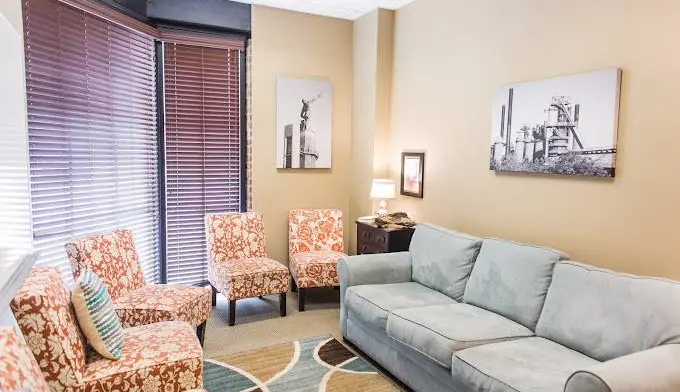
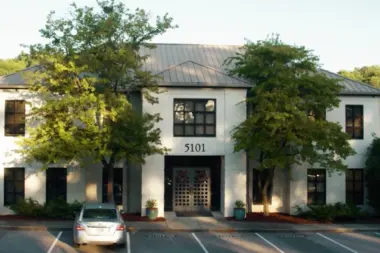
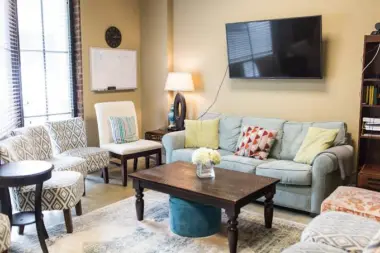

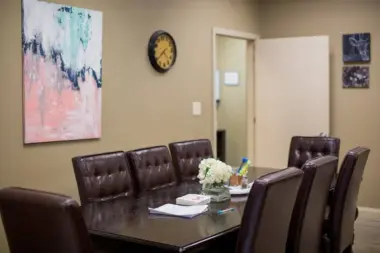
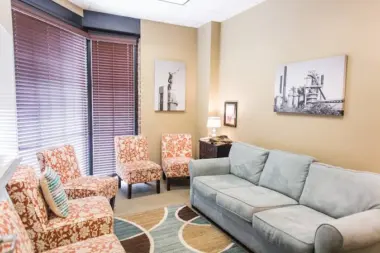
Accepted Insurance

Other Forms of Payment
Private insurance refers to any kind of healthcare coverage that isn't from the state or federal government. This includes individual and family plans offered by an employer or purchased from the Insurance Marketplace. Every plan will have different requirements and out of pocket costs so be sure to get the full details before you start treatment.
Self-pay involves paying for treatment out of your own pocket. You can use savings or credit, get a personal loan, or receive help from family and friends to fund your treatment. If you don't have insurance or your insurance plan doesn't cover a specific program, self-pay can help ensure you still get the care you need.
Addiction Treatments
Levels of Care
Outpatient rehab is designed primarily for clients who do not require intensive clinical supervision. This includes clients who are exiting detox or inpatient care. Outpatient treatment typically involves addiction counseling, recovery education, and life skills training. These programs encompass varying levels of care, including partial hospitalization (PHP), intensive outpatient (IOP), standard outpatient (OP), and sober living/halfway house programs. Each category is defined by the frequency and intensity of treatment.
Residential treatment programs are those that offer housing and meals in addition to substance abuse treatment. Rehab facilities that offer residential treatment allow patients to focus solely on recovery, in an environment totally separate from their lives. Some rehab centers specialize in short-term residential treatment (a few days to a week or two), while others solely provide treatment on a long-term basis (several weeks to months). Some offer both, and tailor treatment to the patient's individual requirements.
Intensive Outpatient Programs (IOP) are for those who want or need a very structured treatment program but who also wish to live at home and continue with certain responsibilities (such as work or school). IOP substance abuse treatment programs vary in duration and intensity, and certain outpatient rehab centers will offer individualized treatment programs.
Rehab aftercare programs are designed to provide support to you after completing an addiction treatment program. These programs are highly customized and evolve with your changing needs. You'll partner with staff at the treatment center to identify any specific medical, behavioral, and social services needed to support your sustained sobriety. Aftercare services may include peer coaching, career counseling, and other personalized support.
A partial hospitalization program (PHP) is a short-term form of intensive rehab, usually for those with acute symptoms that are hard to manage but don’t require 24-hour care. PHPs have structured programming (i.e. individual and/or group therapy), and usually meet 3-5 days a week for around 6 hours (i.e. 9am-3m). Some PHPs are residential (patients sleep on site) and some are not, so patients sleep at home. PHPs can last from 1-6 months, and some offer transportation and meals.
Medically assisted detox is often the first step of addiction treatment. At the medical detox level of care, you are weaning your body off drugs and/or alcohol under the care of licensed medical professionals who constantly monitor your health and treat any potential withdrawal symptoms, sometimes with the aid of medication (like Suboxone or Vivitrol).
Treatments
Mental health rehabs focus on helping individuals recover from mental illnesses like bipolar disorder, clinical depression, anxiety disorders, schizophrenia, and more. Mental health professionals at these facilities are trained to understand and treat mental health issues, both in individual and group settings.
Programs
Adult rehab programs include therapies tailored to each client's specific needs, goals, and recovery progress. They are tailored to the specific challenges adult clients may face, including family and work pressures and commitments. From inpatient and residential treatment to various levels of outpatient services, there are many options available. Some facilities also help adults work through co-occurring conditions, like anxiety, that can accompany addiction.
Young adulthood can be an exciting, yet difficult, time of transition. Individuals in their late teens to mid-20s face unique stressors related to school, jobs, families, and social circles, which can lead to a rise in substance use. Rehab centers with dedicated young adult programs will include activities and amenities that cater to this age group, with an emphasis on specialized counseling, peer socialization, and ongoing aftercare.
Recovery is most successful when clients feel accepted and validated by their peers and treatment providers. Facilities that offer LGBTQ-inclusive programming are committed to creating a safe space where everyone can grow and recover without fear of judgment or discrimination. They will have dedicated policies in place to create a safe and supportive environment that fosters free expression.
Clinical Services
Group therapy provides men and women in Alabama a supportive environment where they can share experiences, build connections, and receive encouragement from their peers who are facing similar challenges with drug addiction and co occurring mental health conditions.
In individual therapy, a patient meets one-on-one with a trained psychologist or counselor. Therapy is a pivotal part of effective substance abuse treatment, as it often covers root causes of addiction, including challenges faced by the patient in their social, family, and work/school life.
Trauma therapy addresses traumatic incidents from a client's past that are likely affecting their present-day experience. Trauma is often one of the primary triggers and potential causes of addiction, and can stem from child sexual abuse, domestic violence, having a parent with a mental illness, losing one or both parents at a young age, teenage or adult sexual assault, or any number of other factors. The purpose of trauma therapy is to allow a patient to process trauma and move through and past it, with the help of trained and compassionate mental health professionals.
If you're experiencing relationship challenges, couples therapy in Alabama can help you work through those difficulties. You and your partner will meet with a professional therapist to work on current issues and strengthen your relationship.
Research clearly demonstrates that recovery is far more successful and sustainable when loved ones like family members participate in rehab and substance abuse treatment. Genetic factors may be at play when it comes to drug and alcohol addiction, as well as mental health issues. Family dynamics often play a critical role in addiction triggers, and if properly educated, family members can be a strong source of support when it comes to rehabilitation.
Proper nutrition increases comfort levels during detox and supports healing during drug rehab in Alabama. Nutrition therapy provides this crucial, balanced nourishment and helps you develop skills for long term health throughout recovery.
Creative arts therapy in Alabama is designed to help improve mental health through the power of the arts. It combines psychology and the creative process to facilitate healing and growth. Methods include art, music, drama, and dance.
Experiential therapy in Alabama includes physical and emotional activities. Participants learn to focus on and identify their feelings through hands on interventions such as art, music, and wilderness adventures. The goal is to overcome negative emotions and improve thought and behavior patterns.
Nicotine replacement therapy in Alabama may be a good option for you if you're dependent on cigarettes or similar products. This therapy allows you to slowly lower your intake of nicotine so you don't suffer extreme withdrawal or cravings as you quit smoking.
Amenities
-
Wifi
-
Residential Setting
-
Private Rooms
-
Mountain Views
-
Gardens
Staff & Accreditations
Staff

Mary Elizabeth Akinaka, LPC., CEDS-S
Regional Executive Director

Ronda Cannon, BS
Regional Director of Development, East Region

Lindsey Dale
Program Director

David Jordan
Nurse Manager

Katherine C. Jordan, MS., RDN., LDN., CEDRD-S
Director of Clinical Services
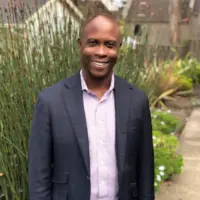
Johnny Williamson, MD
Psychiatrist
Accreditations

The Joint Commission, formerly known as JCAHO, is a nonprofit organization that accredits rehab organizations and programs. Founded in 1951, the Joint Commision's mission is to improve the quality of patient care and demonstrating the quality of patient care.
Joint Commission Accreditation: Yes
Contact Information
5101 Cyrus Cir
Birmingham, AL 35242







